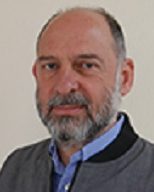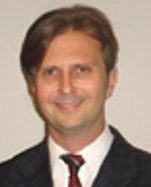
Track 12. Augmented Reality and Virtual Worlds in Education and Training (ARVWET)
Track Program Chairs
[Chair Coordinator]
University of Ioannina,
Greece
California Polytechnic State University San Luis Obispo,
USA
Graz University of Technology, Austria
The Chinese University of Hong Kong, Hong Kong
Track description and topics of interest
Virtual Reality (VR), Augmented Reality (AR), Mixed Reality (MR), and eXtended Reality (XR) technologies seem to be powerful and promising tools in education and training because of their unique affordances, learning affordances and their enacted learning activities. A systematic effort and more empirical studies are needed in order to show how the affordances of all these systems can be used in instructional and learning processes.
To respond the increasing demands of exploiting VR, AR, MR, and XR in education, the Track on Augmented Reality and Virtual Worlds in Education and Training (ARVWET) invites researchers and practitioners to submit original research work in the following topics:
- VR, AR, MR, and XR pedagogy and learning design
- AR, MR, and XR infrastructures for education and training
- Virtual Worlds learning infrastructures
- Socio-cultural perspectives and implications of education in Virtual Worlds
- Virtual Worlds for collaborative and socio-constructivist learning and training
- Virtual environments on certain learning domains
- Virtual labs and simulations for science learning
- Virtual World integrated MOOCs
- VR, AR and MR in informal learning
- VR, AR, and MR in special needs education
- VR, AR, and MR and serious games for teaching and learning
- Cross Reality environments for learning
Track Program Committee
| Christian ECKHARDT, California Polytechnic State University San Luis Obispo, USA |
| Christian GÜTL, Graz University of Technology, Austria |
| Morris S. Y. JONG, The Chinese University of Hong Kong, China |
| Tassos A. MIKROPOULOS, University of Ioannina, Greece |
| Snježana BABIĆ, Polytechnic of Rijeka, Croatia |
| Kaushal Kumar BHAGAT, Indian Institute of Technology Kharagpur, India |
| Su CAI, Beijing Normal University, China |
| Wun Wa CHAN, Hong Kong Baptist University, Hong Kong |
| Dimitrios CHARITOS, University of Athens, Greece |
| Yun DAI, The Chinese University of Hong Kong, China |
| Emmanuel FOKIDES, University of the Aegean, Greece |
| Gwo-Jen HWANG, National Taiwan University of science and Technology, Taiwan |
| Andri IOANNOU, Cyprus University of Technology, Cyprus |
| Michael JIANG, The Chinese University of Hong Kong, China |
| Ayaan KAZEROUNI, California Polytechnic State University, USA |
| Ralf KLAMMA, RWTH Aachen University, Germany |
| George KOUTROMANOS, National and Kapodistrian University of Athens, Greece |
| Wilfred LAU, The Chinese University of Hong Kong, China |
| Min-Hsien LEE, National Taiwan Normal University, Taiwan |
| Antonis NATSIS, University of Ioannina, Greece |
| Krzysztof PIETROSZEK, American University, USA |
| Maria Isabel POZZO, National Scientific and Technical Research Council, Argentina |
| Junjie SHANG, Peking University, China |
| Niwat SRISAWASDI, Khon Kaen University, Thailand |
| Jerry Chih-Yuan SUN, National Yang Ming Chiao Tung University, Taiwan |
| Hakan TÜZÜN, Hacettepe University, Turkey |
| Jonathan VENTURA, California Polytechnic State University San Luis Obispo, USA |
| Spyros VOSINAKIS, University of the Aegean, Greece |




